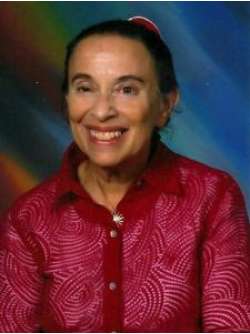

Dellann
Tutor and Individual Instructor; Certified Teacher
I have over 25 years of public and private school experience. Additionally, I have been a part-time adjunct instructor of history for fifteen years. I have also done homebound teaching for over fifteen years on a part-time basis. Currently, I encourage students to use a variety of online sources as well as interviews of persons involved in local government and/or businesses. Whenever possible, I incorporate local, national, and international news into appropriate subject matter. An ultimate g...
accounting
I worked with a Certified Public Account for seven years as I did bookkeeping for a small family business. Other experience includes studies of business conditions for four college economics classes. I routinely read sections of The Wall Street Journal, and I also watch business reports on the CNBC cable channel which covers current national and international financial conditions. I also took a one-day professional development course about globalization, and the constantly changing conditions of international and national trade. The course was organized by the South Carolina Economic Council and the Moore School of Business at the University of South Carolina, Columbia, SC.
ACT English
ACT Math
ACT Reading
ADD/ADHD
I have worked with children of many grade levels who have ADD and/or ADHD. Some of these students have been on medications sometimes. When the medications make the students calmer, there are other issues. Parents are very apprehensive about lengthy use of medications when side effects can be unpredictable. My strategy is to motivate the student by offering a variety of learning styles including visual, auditory, and kinesthetic. Reading is very stressful for some students in elementary grades. Keeping the place from line to line is a great challenge for students who have difficulties with concentration. Using a colored marker under the line is effective for some students. Attention Deficit Disorder and Attention Deficit Hyperactivity Disorder are two diagnoses often used by psychiatrists, psychologists,counselors, pediatricians, and general physicians. Instructors should not apply these terms to individual students without consulting with the family and the entire team of providers who might be involved with either a child or an adult. Family members should consider the diet and lifestyle of a child or young adult who is unable to concentrate. In 2013 diet, including all kinds of snacks, artificial ingredients in drinks, and excessive sugar and/or sugar substitutes may cause different reactions. Audio/visual distractions may have a detrimental influence on concentration if a child and/or young adult spends too much time watching video games or other activities viewed on a computer. A parent/guardian, friend, or sibling may help by sharing observations. In conclusion ADD/ADHD are two terms whose significance requires revised interpretations as a greater variety of stimuli may interfere with concentration. This statement means that neither a single medication nor a limited approach will improve these two conditions.
American history
art history
Aspergers
I have studied about Aspergers during a graduate course, Introduction to Exceptional Children. This course was part of the requirements for my Master's Degree in Secondary Administration (M.Ed.) The first time I heard the designation Aspergers Syndrome was in 2004 in reference to a family member who was having emotional problems. A couple of months later the same individual received a B+ in a college course about Art History. I have had students in high school and elementary school who may excel in one or more areas at the same time their social behavior may be quite inappropriate. These students might receive the designation Aspergers Syndrome if they were seen by a counselor or mental health specialist. Historically famous inventors, composers, scientists, and other leaders in their fields have exhibited periods of social isolation along with their outstanding achievements. During their lives they did not receive the designation Aspergers syndrome which was not used before the 1940s, but television programs and major national charities have publicized the condition in recent years.
ASVAB
autism
Autism includes a variety of conditions. Each case must receive individual attention to help the child or adolescent achieve to his or her greatest potential. In the 1940s the classification of autism gained more attention. Since 2000 those children, adolescents, and adults with high functioning autism have received more successful interventions. The term Asperger's syndrome applies to some of these cases. It is essential for families to seek help from teachers, psychologists, physicians, and nutritionists to improve the quality of life for those with a diagnosis within the autism spectrum disorders. My training and experience includes personal experience with adolescents and young adults with high functioning autism and/or Asperger's syndrome. In 2007 I received an A on a University of South Carolina graduate education course entitled Introduction to Exceptional Children. Part of this course was a unit about children, adolescents, and adults with diagnoses of conditions on the autism spectrum disorders. I recommend the 2004 Paperback edition of Developing Talents (Careers for Individuals With Asperger's Syndrome and High-Functioning Autism by Temple Grandin. The author has experienced Asperger's syndrome in her own personal life, and she has a variety of realistic, practical suggestions. In one of the high schools where I taught a young man who was an outstanding writer was diagnosed with Asperger's. His social skills were sporadic. One of my daughters has had at least one diagnosis of Asperger's. She has had several kinds of high academic achievements, but she has also had to deal with emotional issues and jealousy of peers. I know that an individual with high functioning autism requires a patient tutor who realizes that a person who succeeds academically may have difficulties in other situations.
